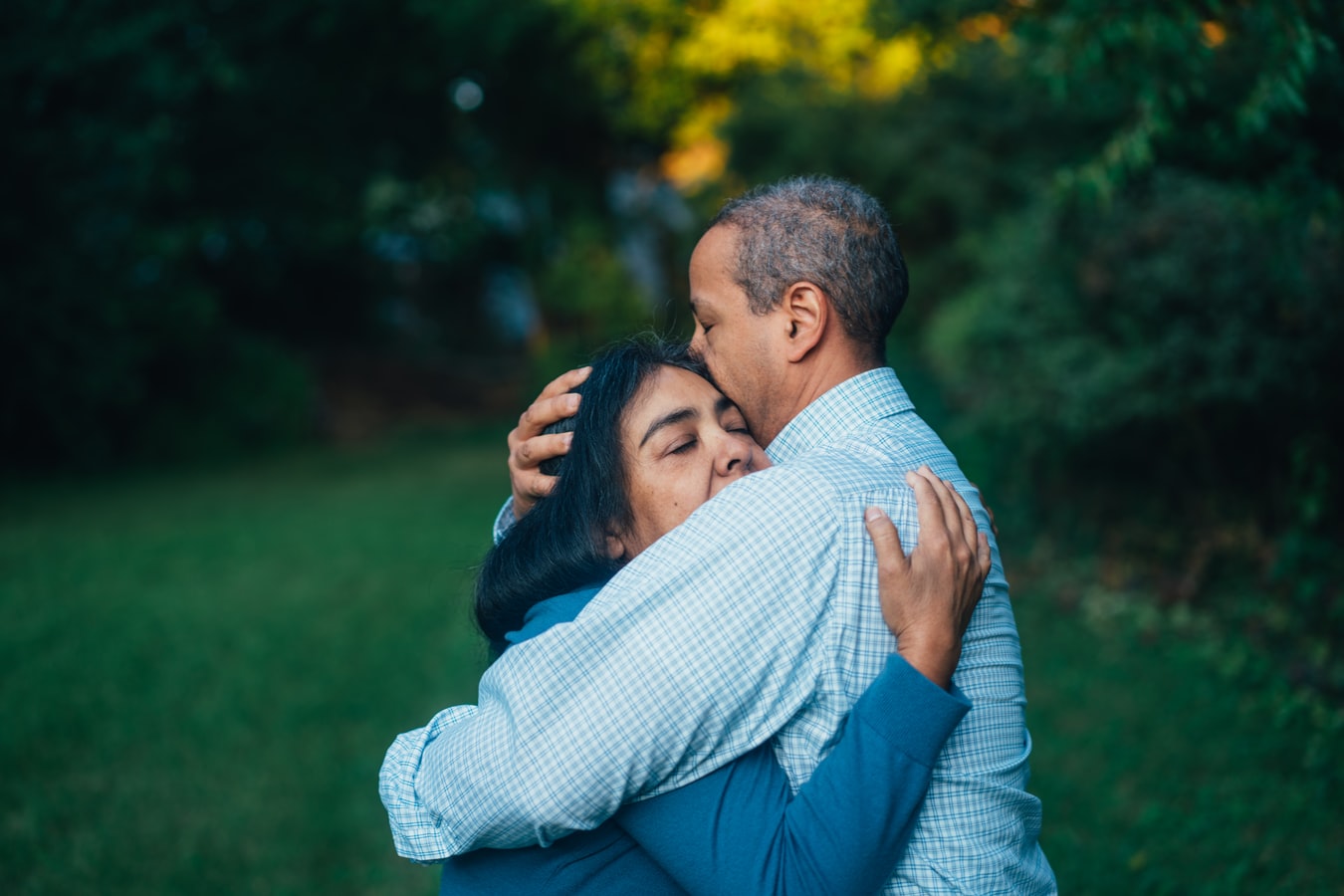Updated: June 22, 2022
Learning About Forgiveness When Addiction is Involved
“Forgiveness does not change the past, but it does enlarge the future.” – Paul Boese
Forgiveness is difficult. For those of you who know someone struggling with a drug or alcohol addiction, it can seem like the relationship is one-sided. That’s because you’re always forgiving them for mistakes made on behalf of their addiction, with no end in sight.
For the addicts themselves, the feelings of self-loathing and shame feel like impossible obstacles to overcome. Therefore, it drinking or using drugs sometimes becomes the easier choice.
In addiction recovery, forgiveness is difficult because it requires people to go against their human nature and not react in anger when people struggling with addiction make a mistake that affects the people around them. It asks us to accept the past for the past. It asks us to empathize. Lastly, it asks us to move on.
These things take more work than we realize. Healthy forgiveness is not “forgive and forget”. Healthy forgiveness takes hard work and contemplation. It requires us to truly empathize and allow ourselves to forgive past mistakes that affected us directly. Forgiveness is a path to healing and serenity that begins and ends with compassion — for ourselves and for the loved one battling substance abuse.
Staying in the past and feeling resentment and bitterness only make it more difficult to find happiness in life. As we move forward with our loved one in addiction recovery, it’s important to learn and understand the power of forgiveness. Self-forgiveness and forgiveness for others allow us to let go of pain and allow the healing process to unfold. It’s important to unload the burdens of resentment and guilt, as they will only serve to pull us back into the folds of substance use.
One national poll by Gallup showed that 94% of Americans believe that it is important to forgive others, yet that same poll shows that less than 50% had actually tried to forgive those who offended them. Although forgiveness is something we can all agree is important, it seems many of us do not know what it looks like or when to do it, or find it something too painful to undergo.
“Forgiveness is God’s invention for coming to terms with a world in which, despite their best intentions, people are unfair to each other and hurt each other deeply. He (Jesus) began by forgiving us. And he invites us all to forgive each other.” – Lewis B. Smedes
What Does Forgiveness Mean in Addiction Recovery?
The concept of forgiveness is easy to understand but difficult to practice. People forgive one another all the time for small-to-big issues every day. It’s something that most of us are taught at a young age, which hopefully builds the foundation for our adult lives to accommodate forgiving others.
In the context of addiction, forgiveness can be a complicated and painful concept. For example, you may have difficulty:
- Forgiving a parent who abused you while they were drinking or using drugs
- Forgiving yourself for past mistakes while you were addicted
- Forgiving a loved one for continuing to use substances
Forgiveness means letting go of anger, frustration, resentment and negative feelings towards another person or ourselves. It requires us to release any built-up unhealthy emotions that we might be holding on to. It’s understandable to hesitate to forgive a person who hurt you or to even forgive yourself, but there is peace and empowerment on the other side that will make recovery easier in the long run.
Why Should You Forgive Yourself or an Addict?
A lack of forgiveness carries many negative consequences, including your physical and emotional health. For example, harboring anger can lead to higher blood pressure, a weakened immune system and heart issues. If you’re attempting to recover from substance use disorder, try to minimize potential stressors in your life to achieve a state of emotional clarity.
Forgiveness allows people in recovery to achieve a healthier state of emotional and physical wellness, making it easier to cope with triggers, stressors and cravings to use or drink again.
Forgiveness Improves Your Physical & Mental Health
Psychologist Michael McCullough, Ph.D., has undertaken several studies on the power of forgiveness to affect the health of subjects. During one study, patients were asked to reflect on someone who had hurt them in a significant way and to reflect on the pain and resentment they held towards that person. Then, they were asked to picture this person in a forgiving light, imagining that they had made amends and moved on.
Throughout the study, subjects were monitored for heart rate, blood pressure, perspiration, and facial expressions. Unsurprisingly, the first reflection period was characterized by higher heart rates, higher blood pressure, increased sweating and frowning. One can see how retaining negative perceptions and harboring ill will towards a person can result in poorer overall health and wellness.
Forgiveness sleep and mood study
Another study carried out on the power of forgiveness for American adults found that there is a significant correlation between the forgiveness of others and sleep. According to the study, forgiveness of others and self-forgiveness may reduce emotions like anger and regret. As a result, forgiveness provides a barrier between a person’s own and others’ offenses that happen throughout the day, creating a peaceful mental state that supports better sleep habits.
Another study on forgiveness, conducted as part of the Stanford Forgiveness Project, analyzed the impact of therapeutic forgiveness training. Nearly 260 participants in the study with unresolved feelings of resentment or pain against another person underwent nearly five months of educational training. At the end of the study, it was found that participants made huge leaps not only in forgiving that person but also in reducing physical and mental effects. Of the participants, 70% reported decreased feelings of hurt, 13% reported reduction in long-term feelings of anger, 27% reported a reduction in physical symptoms of stress, and 15% reported a decrease in stress.
“When you hold resentment toward another, you are bound to that person or condition by an emotional link that is stronger than steel. Forgiveness is the only way to dissolve that link and get free.” –Catherine Ponder
Why Forgiveness is so Important in Addiction Recovery
The beginning of the addiction recovery process typically begins with a wide range of emotions, some of the strongest being feelings of shame and guilt. For example, the pain you may have caused others in the form of mental stress, money problems, or physical hurt. Self-forgiveness is a helpful way to cope with these powerful, negative emotions, making it an integral component of the overall recovery process.
Guilt and shame are natural parts of human life, so it’s important not to beat yourself for being unable to relinquish these emotions. Your conscience helps you determine your personal value system and is what unites us a human race, so it would be a negative thing for you to never experience these emotions at all.
The recovery process sometimes forces you to come face to face with these feelings and ultimately forgive yourself if you want to overcome your addiction.
3 Healthy Ways to Forgive Yourself in Recovery
Whether you’re in active addiction or recovery, you may have done some things you’re not proud of. Maybe it was stealing money for drugs, lying about being intoxicated, cheating on a spouse while under the influence or neglecting a relationship. You may have even hurt yourself by neglecting your physical and emotional well-being, gaining weight, losing too much weight, or perhaps ruining your career or education. The laundry list of infractions and offenses done by addicts over time is well documented and exhaustive.
While there are many things that you might have done while under the influence of drugs or alcohol, the one thing they all have in common is that they happened in the past. These are actions that you cannot undo. If you continue to self-loathe or pity yourself for doing these things, the pain will remain as a lasting sickness alomngside your addiction, lowering your chances for a successful recovery.
Remember, ADDICTION IS A DISEASE, NOT A MORAL WEAKNESS. You’re not a bad person. You’re a sick person and you deserve the opportunity to recover and make amends.
Making amends in addiction recovery
An important aspect of recovery is called making amends. The word “amend” means to make minor changes, make better and improve. Making amends to those you have wronged while misusing drugs or alcohol is a way to acknowledge your regret, make a pledge to do better and work toward forgiving yourself.
Examples of making amends include:
- Paying back stolen money
- Apologizing for offenses
- Telling the truth to someone you have lied to.
Even if there is no way to fully make up for what you did, you can still do your best and ask for forgiveness.
Here are three additional ways to practice self-forgiveness.
Write It Out
Writing can be a therapeutic tool for working out your feelings. Write down what you have done and why you are angry with yourself. Through complete honesty, you may be able to work out why you feel this way and begin to forgive yourself.
Talk With Others
Sitting down and sharing with another human being is often the best form of release for people in addiction recovery. Choose someone who will not be judgmental or who has gone through similar experiences to you.
Give Yourself Credit
Get in the habit of crediting yourself when you do something good. It’s easy to point out what’s going wrong in life, but taking the time to acknowledge positive things makes them all the more powerful. You can rewrite your narrative and begin to form a positive perspective of yourself that leads to self-forgivness.
3 Helpful Ways to Forgive an Addict
It’s not easy to forgive a person struggling with addiction for their wrongdoing. Authentic forgiveness is not forgetting or denying the way something made you feel, but instead learning to transition from resentment to understanding and empathy. According to the Big Book of Alcoholics Anonymous, resentment is what destroys more alcoholics than anything else, because it ultimately leads to worthlessness, unhappiness and shutting out loved ones.
It’s important to look objectively at a situation and weigh all the factors that may have gone into another person’s actions. They may have come from a background of abuse. They may have never learned to communicate. Addiction may run in their family.
They may have experienced serious trauma. They may be experiencing chronic, untreated pain. There are a seemingly endless number of reasons beneath the surface that can be recognized and empathized with. Here are three ways to practice forgiveness for people suffering from addiction.
Understand
The disease of addiction is something that rewires the brain and changes the way people think. Addicts go against all logic and sense to use drugs or drink alcohol because they are no longer in control of their minds and body. When you understand that addiction is not a choice, you can accept that your loved one has a sickness and that they need treatment.
Write a Letter
If you have difficulty talking to the person, or perhaps they have passed away, some experts suggest writing an “unsent letter” in which you express your hurt, resentment, acceptance and understanding of their addiction. If you want, try sending the letter, or burn the letter as a symbolic gesture of forgiveness if the person is deceased.
Give It Time
In some cases, you may find it impossible to forgive another person. They may continue misusing substances or refuse to acknowledge the pain they inflicted upon you. In any case, it may take time for you to understand their disease. In the meantime, surrender the burden of hurt and continue to live your life.
Quotes About Forgiveness
“The more you know yourself, the more you forgive yourself.” - Confucius
“You cannot travel back in time to fix your mistakes, but you can learn from them and forgive yourself for not knowing better.” – Leon Brown
“Forgive yourself. The supreme act of forgiveness is when you can forgive yourself for all the wounds you’ve created in your own life. Forgiveness is an act of self-love. When you forgive yourself, self-acceptance begins and self-love grows.” – Miguel Angel Ruiz
“Never forget that to forgive yourself is to release trapped energy that could be doing good work in the world.” – D. Patrick Miller
“Embrace and love all of yourself – past, present, and future. Forgive yourself quickly and as often as necessary. Encourage yourself. Tell yourself good things about yourself.” – Melody Beattie
“Love yourself, accept yourself, forgive yourself and be good to yourself, because without you the rest of us are without a source of many wonderful things.” – Leo F. Buscaglia
“Understanding that we are more than our transgressions helps us see beyond the transgressions of others.”
“Regardless of how illogical it may seem at times, it is through unconditional forgiveness that we surrender the past to the past and enter the present, freeing ourselves to stand in the infinite Light that knows how to heal our deepest and most painful wounds.” – Dennis Merritt Jones.
Click here to read more inspiring addiction recovery quotes.
Forgive Yourself, Others, Then Find Treatment
To learn more about coping methods, forgiveness in recovery, and useful tools for recovery, visit the Landmark Recovery blog page.
We approach treatment from the perspective that no two addictions are the same. We provide evidence-based and individualized plans for each patient. If you or some you know is seeking treatment for a drug or alcohol addiction, call one of our recovery specialists at 888-448-0302.

Choose Recovery Over Addiction
We're here 24/7 to help you get the care you need to live life on your terms, without drugs or alcohol. Talk to our recovery specialists today and learn about our integrated treatment programs.






